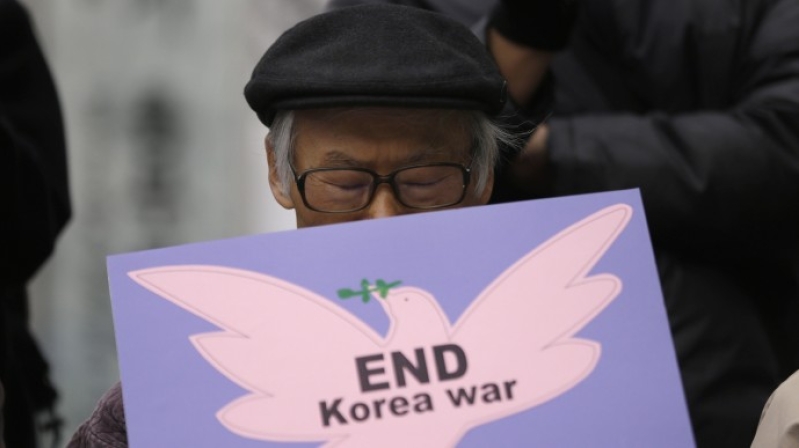
The Democratic People's Republic of Korea (DPRK) reportedly sent a letter by Kim Jong Un's orders Friday, asking that the South consider reconciliation and a cease-fire to prevent nuclear war. The letter comes just weeks before the United States and South Korea are scheduled to run their annual joint military drills, which have provoked North Korea to threaten nuclear war against the two countries in the past.
North and South Korea have been skirmishing ever since the Korean War of the 1950s. Fox News reports that the North Korea National Defense Commission wrote South Korea to "stop all hostile military acts" against one another, calling them "the biggest hurdle stoking distrust and confrontation." The DPRK says they hope to pave a "wide avenue for mending North-South relations."
North Korea also say they are opting to halt all acts of "getting on the nerves of South Korea and slandering it," in an effort to reconcile with the country. The South Korean defense ministry has dismissed the letter, however, believing that the North has ulterior motives.
The DPRK had previously threatened that any small skirmish between the two countries would escalate to an "all-out war." They strongly suggest that the South take care not to "thoughtlessly doubt, misinterpret and rashly reject our sincere, important proposal." Wi Yong-seop of the South Korean defense ministry says he believes that the relations between the two countries could be improved if the North stopped their "threatening and hostile rhetoric."
North Korea has also urged the United States and South Korea to cancel the joint military drills scheduled to take place over the next few months. The DPRK perceives these drills as a preparation for combat, and has threatened both countries with nuclear war historically. The BBC reports that it is likely that the timing and content of the letter are intended to prevent the drills from taking place.






